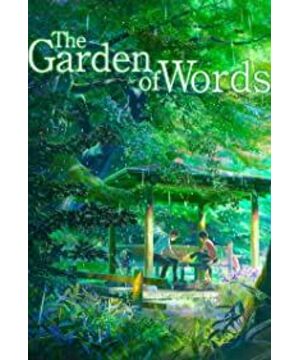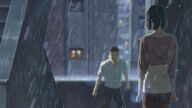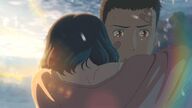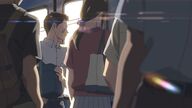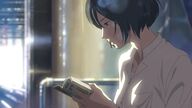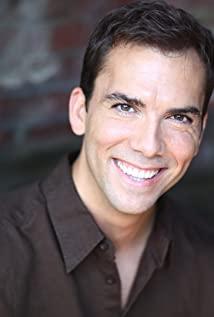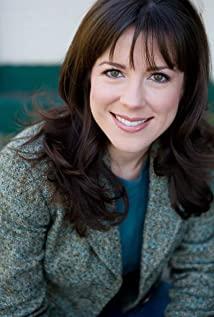"Come weeks kara rainy ni wa riそuで, yesterday in Yori 11 day early ku na ~ te ma si ga, average year more than 10 during the day rather lateいmold Yang desu ..."
, "next week probably will enter the rainy season, compared to last year, almost 11 days in advance, It is about 10 days later than in previous years..." It
has become a habit to go to work after reading the weather forecast every morning. It will be the rainy season again soon. At this time of the year, I always feel a little depressed, just like this. The silent world has been soaked in water, and it feels like a cloud of clouds is stuck in my heart wherever I go.
"もうすぐ梅雨だよね、きちんとprepしないと. 和君はどう? もう用れたでしょう, Nippon no Tenkay
, I shouldn’t prepare for the rain soon. It should be no problem. Okay, you should be used to the weather in Japan?"
Every morning conversations with colleagues basically start with the weather. Japanese culture is like life, it is always inseparable from the weather. "言の叶の庭" can Be regarded as one of them.
"The Garden of Words of the Leaves" is undoubtedly the most beautiful one of Makoto Shinkai's works, and the most Japanese one. Past works have put the incomparably realistic time and space in front of the audience, making people feel that although the story is beautiful, the reality is so real. But this work uses such a true story to describe a beautiful distance, a distance between heart and heart.
A few days ago, I saw an article saying that Natsume Soseki asked some of his students how to translate the English "I love you" into Japanese. After the students translated it into a Google translation such as "私はあなたを爱する", Natsume Soseki looked up at the sky and said that your translation was completely wrong. If you are a Japanese, just translate it as "The moonlight is very bright tonight." OK", that's it.
It means that some things are better to be experienced than to be translated, and some moods are better to be felt than to be understood. The same is true for this work. If you want to translate it into Chinese alive, there is not much beauty.
"言葉" (ことば) means language in Japanese. Yan (こと) and 事 (こと) are pronounced the same, referring to the meaning of facts. Ye (ば) and Duan (は) are pronounced the same. ) Is the meaning of description, that is to say, "speaking" is the meaning of describing facts.
This can explain why the heroine is an ancient Chinese teacher and there are so many leaves in the film. Interested students can sort out all the shots about leaves, and they will find that every shot of a leaf represents a meaning.
【Many Leaves Collection】Many Leaves Collection = 萬の言の葉を集まること
is the oldest collection of Japanese poetry in Japan.
A paragraph is quoted in the film:
Author: Persimmon himself, Maro song collection, abbreviated style, female song, Later Dynasty
[Original] Thunder God's small movement thorn cloud rain zero Ye Jun will stay
[設読]鸣る神の少し响みてさし昙り雨も降らぬか君wo leaving Circularむ
[temporary substitute lot name], na ru ka Minorin, su ko shiとyo mi-te, Connecticut shi ku mo ri thou Circular mo fu ra nu ka, ki Mi woと-do Circularむ
[sic] Raytheon small move, though not zero happiness left sister leave those
[training Du] Ming ru Godのlittle shi rang Mi te drop ra zuとmoo I wa stay ma raむsister shi leaving Circular ba
[temporary substitute lot name], na ru ka Minorin, su ko shiとyo mi-te, fu ra zuとmoo, wa waと-do ma raむ,いmoo shiと-do Circular ba
these two tanka is not translated, it can be Comprehend as a simple folk song, just like this story, 46 minutes, no complicated plot, no tangled relationship between characters, simple and clean, like a cup of tea in a rainy day.
That is to say, these two short songs run through the entire film. It can be said that this is the whole film.
So, after reading this film, the meaning of these two short songs will also be understood.
"Ting" (にわ) means courtyard. The scene in the film is Shinjuku Gyoen National Garden. When I first went there, I was very emotional. There is such a big park in such a prosperous place. In fact, there are many large and small parks in Tokyo. Later, I learned that in order to provide citizens with shelters during earthquakes, the Japanese government stipulated that there must be a park within a certain area, and many parks were preserved.
The pavilion in the film is part of the Japanese courtyard of Shinjuku Gyoen. I personally think it has two meanings: 1. It describes the inner courtyard in this desert-like city. 2. This is a Japanese courtyard. Maybe Cheng Ge is telling the audience that there is still a piece of ancient culture that precipitates in this impetuous city.
After explaining the title, I should be able to feel a little bit about this film.
Shoes are another key in the film. I personally think that shoes are probably a kind of protection.
Qiuyue is 15 years old, a first-year high school student, but she is very mature in her heart, maybe just showing so mature in front of everyone, because he hopes that he is no longer a child in the eyes of others. He hopes to be recognized by everyone. He hopes that he can become a shoemaker. He hopes that the shoes he makes can protect others, but only one wears his shoes, himself. In other words, he has always been just protecting himself.
In the film, there is a memory of Qiuyue when he was a child. The family was in Shinjuku Gyoen. The father took out a gift and the box was a pair of exquisite high heels. At that time, the mother was very happy and everyone was very happy. Perhaps this is one of the reasons why he wants to become a shoemaker. One day, he can bring happiness to someone with his own hands and protect someone with himself.
Xueye is 27 years old and a teacher of ancient Chinese in high school. She is strong in appearance, gentle, sensitive and fragile inside. She always tries to hide her true self. There are many people around her who care about her, but she has never shown her fragility in front of anyone. Because what she needs is not sympathy.
To say that the intersection of Qiuyue and Xueye may be the core of this film: loneliness.
They are like countless ordinary people living in this city, living a repetitive life every day, trying to find a reason for themselves to escape reality every day. There are many relatives and friends around, but no one can really touch the truest self. Even if it seems that there is no distance between the couple, the inner distance is tens of thousands of miles.
They can only meet in that courtyard every rainy morning, but they have always kept that kind of distance from strangers.
Xueye left Qiuyue with a title "Thunder God's little movement thorny cloud Yuling Ye Jun will stay." Qiuyue didn't care at first, until one day, he realized that he was trying hard to learn, learning to make shoes for another person. When learning to protect that person, he found his own answer.
"Thunder God's small move is not zero, I will stay with my sister."
That day there was lightning and thunder, and the rain was majestic. The two people coincided with each other in their hearts, "Maybe this is happiness."
Well, happiness does not require luxury houses and cars. A cup of coffee in front of the person you like is happiness in an afternoon.
The film is the climax from here. Qiuyue's confession broke this short-term happiness and touched the last line of defense in Yukino's heart. "Actually, I have been practicing, practicing walking alone, even without shoes." This sentence directly defeated Qiuyue. He thought he had grown up and left like an "adult" without hesitation. When only Xue Ye was left in the room, the last line of defense fell apart~ The
ending song [Rain] sounded. In the heavy rain, Xue Ye put aside all the concealment of the adults, barefoot, and caught up with Qiuyue. Qiuyue released all his emotions. , Who complained about Xueye like a real child, Xueye gave up all the protective colors that an adult should have, and cried loudly in Qiuyue’s arms. The two people left everything in the rainstorm and became the truest themselves, Yu It's sunny.
With the ending song, dark and bright, and the seasons change, in the pavilion of Shinjuku Gyoen, Akizuki opened Yukino’s letter, and then narrated “In fact, at that time, I must have been doing the same practice, practicing learning to walk, what? When I can go further, I will see you"
What is true love?
Give you time, give you freedom, until you find yourself, I am waiting for you.
"The rain has stopped, will you stay?"
"If you want me to stay, I will stay"
[End]
PS: The ending song "Rain" is even more of a point, a perfect match!
PPS: The film was released on May 31, which happened to be the beginning of the rainy season in Tokyo in previous years. Even considering this, I have to admire the delicacy of Cheng Ge!
View more about The Garden of Words reviews


